Grammar practice Normal Writing Worksheets for Ages 6-8
7 filtered results
-
From - To
Boost your child's grammar skills with our engaging “Grammar Practice Normal Writing Worksheets” tailored for ages 6-8. Designed to make learning fun, these worksheets provide interactive activities that reinforce essential language concepts. Each page features colorful illustrations and age-appropriate exercises to help young learners master punctuation, sentence structure, and parts of speech. Whether for classroom use or home practice, our worksheets inspire confidence and fluency in young writers, preparing them for more advanced grammar skills. Empower your child with the tools they need to achieve academic success. Download now and watch them excel in their writing journey!
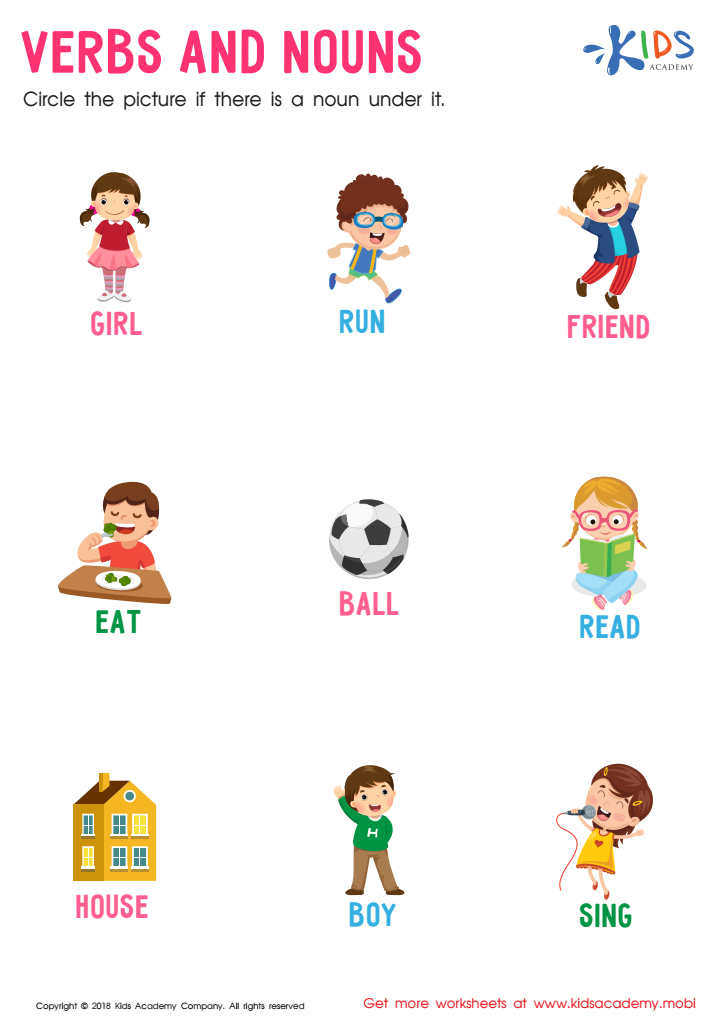

Verbs and Nouns Worksheet
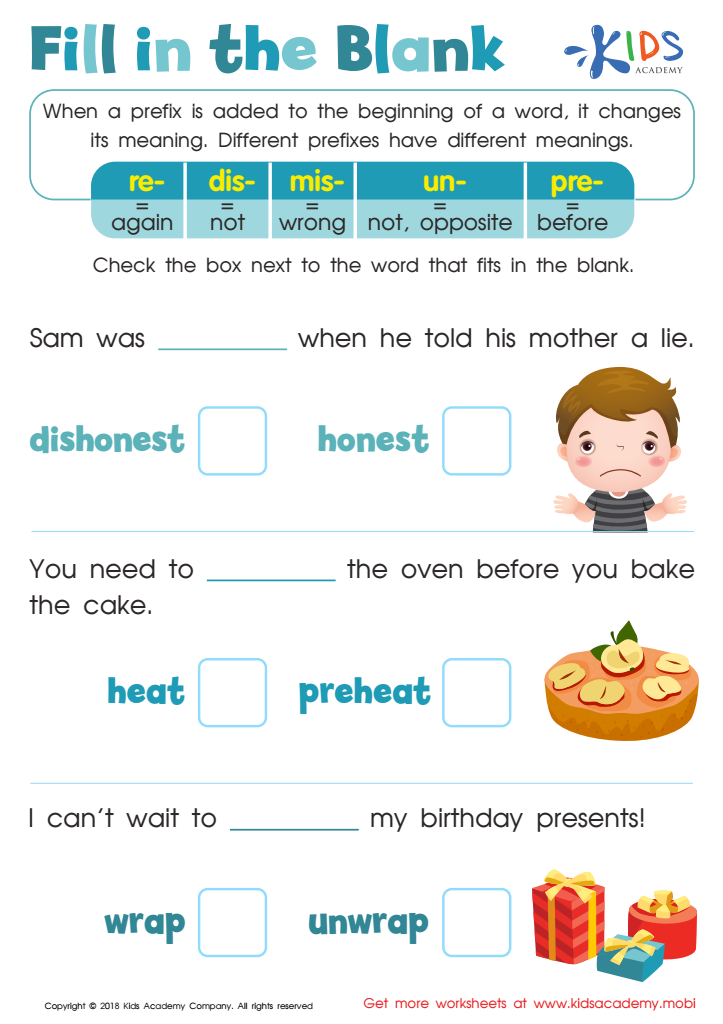

Reading: Fill in the Blank Worksheet
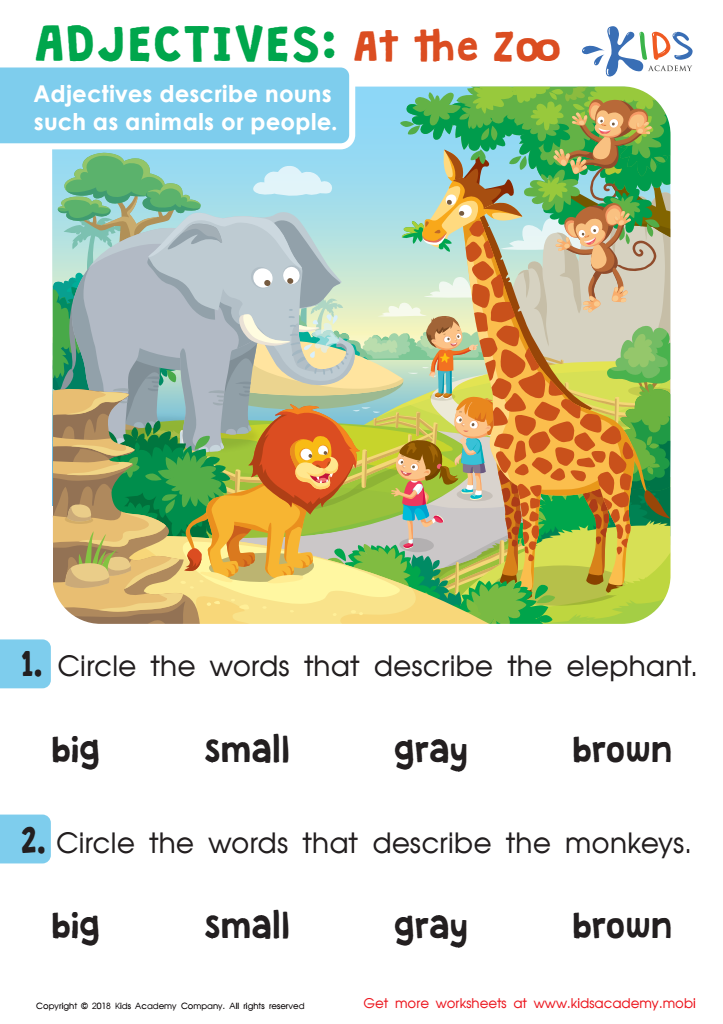

Adjectives: At The Zoo Worksheet
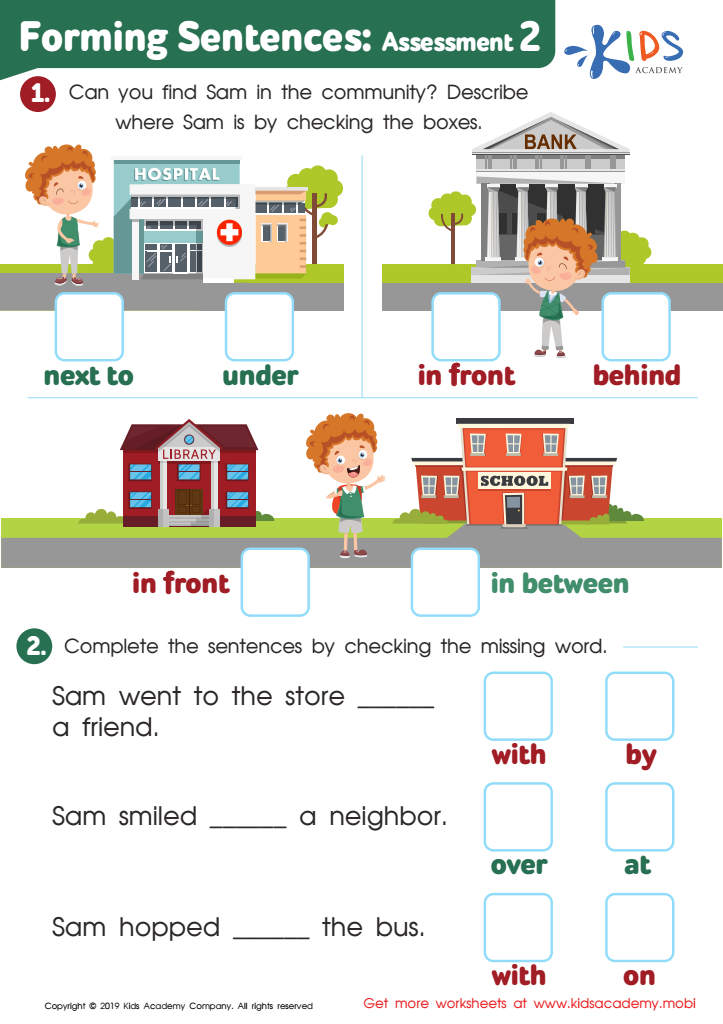

Forming Sentences: Assessment 2 Worksheet
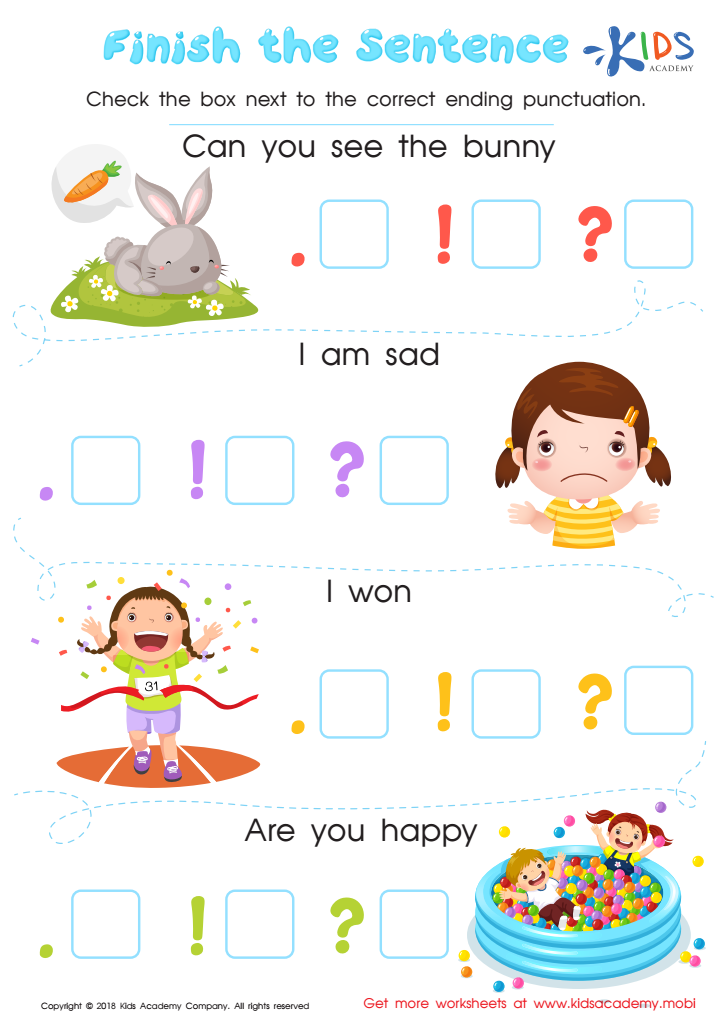

Finish the Sentence Worksheet
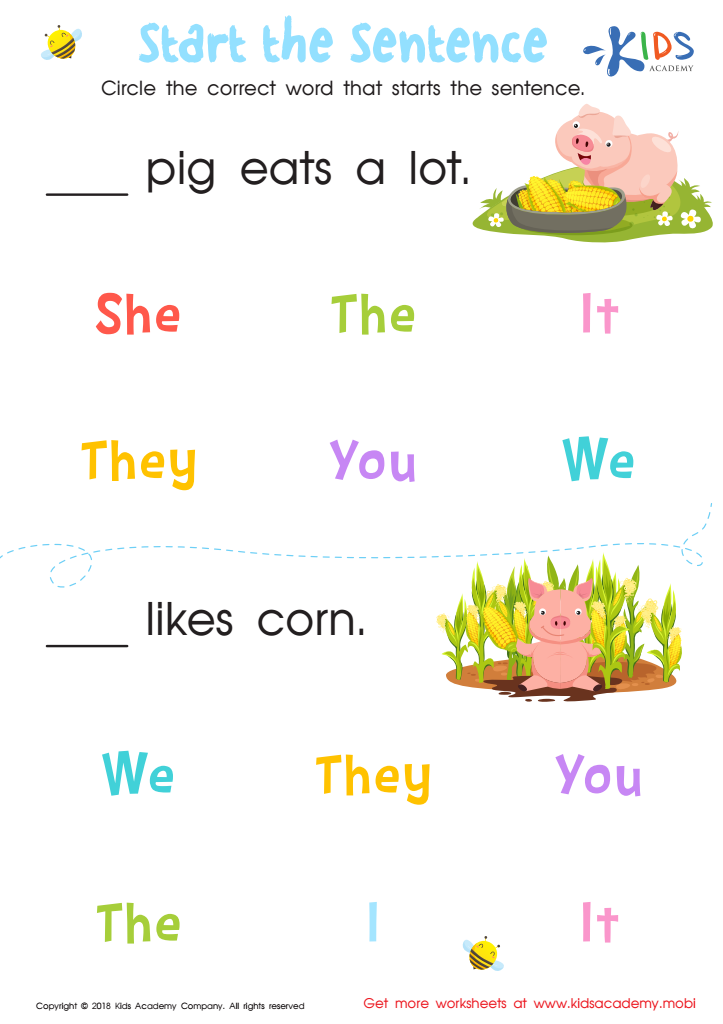

Start the Sentence Worksheet
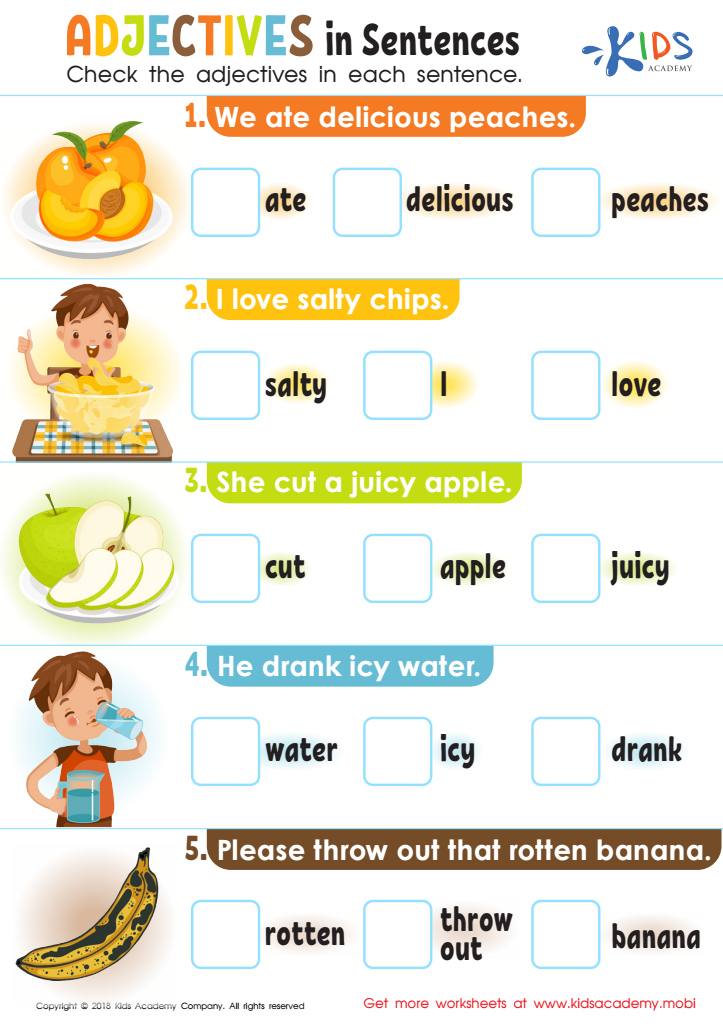

Adjectives in Sentences Worksheet
Parents and teachers should care about grammar practice for children aged 6-8 because it lays a crucial foundation for effective communication and academic success. During these formative years, children's brains are highly receptive to language acquisition. By engaging in grammar practice, young learners build essential skills in sentence structure, punctuation, and word usage. These skills help them to express their ideas clearly and coherently, both in spoken and written forms.
Stronger grammatical skills also enhance reading comprehension. When children understand how sentences are constructed, they can better grasp the meaning of the texts they read. This not only boosts their academic performance but also fosters a lifelong love of reading. Moreover, good grammar practices instill discipline and attention to detail, qualities that are beneficial beyond language arts, aiding in the overall cognitive development of a child.
Additionally, proper grammar usage boosts confidence. When children are equipped with the tools to communicate effectively, they are more likely to participate in classroom discussions, convey their ideas, and connect with peers.
In sum, investing time in grammar practice for young children provides them with the necessary tools for clear communication, boosts their academic prowess, and builds their confidence, setting a strong and positive trajectory for their future learning experiences.
 Assign to My Students
Assign to My Students



















